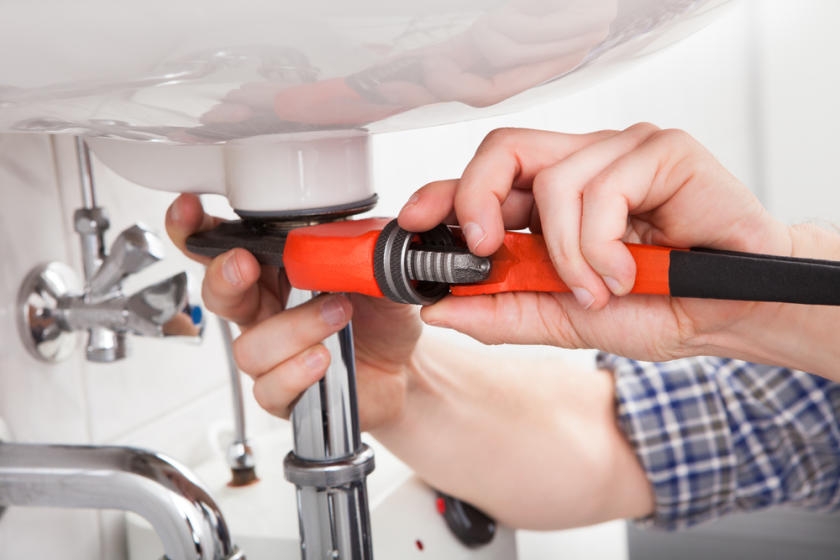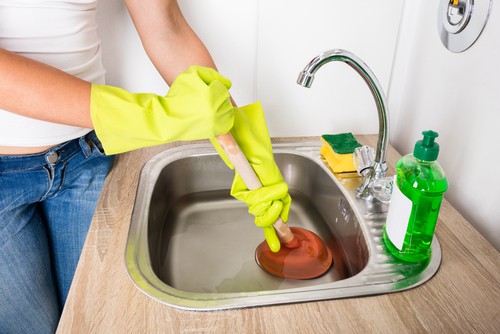Any individual seems to have their own unique idea involving Expert Tips for Emergency Plumbing Repairs.

Pipes emergency situations can strike any time, triggering stress and anxiety and possible damages to your home. Whether it's a ruptured pipeline, a clogged drain, or a leaking faucet, understanding exactly how to handle the circumstance up until an expert plumbing technician shows up can conserve you from additional issues. This short article offers vital emergency plumbing suggestions to help you reduce damages and reclaim control throughout a pipes situation.
Switch off the Supply Of Water
The primary step in any type of pipes emergency situation is to shut down the water. For localized issues, such as a leaking faucet or bathroom, turn off the valve near the fixture. In the case of a major leak or burst pipe, locate your home's main water shut-off valve and turn it off instantly. Knowing the place of these valves in advance can save valuable time during an emergency.
Address Small Leaks with Temporary Fixes
Small leaks can quickly become substantial troubles if left uncontrolled. Make use of these short-lived solutions up until expert assistance arrives:
While these solutions aren't irreversible, they can aid decrease water loss and damages.
Unclog Drains Pipes Securely
A stopped up drainpipe can be a discouraging and untidy problem. Right here's exactly how to tackle it:
If these techniques don't function, stay clear of utilizing excessive pressure, as it might intensify the blockage.
Take Care Of Overflowing Toilets
An overruning toilet can create prompt mayhem. Here's what you need to do:
Shut Off Your Hot Water Heater
In certain emergency situations, such as a ruptured pipe, it's a good idea to shut down your hot water heater. This avoids overheating or damages to the device when water stops moving. Shut off the power supply to the hot water heater (electric or gas) and allow it cool down to prevent potential dangers.
Momentarily Stop a Ruptured Pipe
A burst pipeline can result in substantial water damage in mins. To mitigate the problem:
Call a specialist plumbing quickly to deal with the trouble permanently.
Take Care Of Frozen Pipeline Very Carefully
In colder environments, icy pipes are an usual emergency. If you presume an icy pipe:
Avoid More Damages
Taking quick action to lessen damages can save you time and money over time. Below's how:
. Have an Emergency Situation Pipes Package
Prepare a standard pipes emergency kit to handle minor problems efficiently. Your set must consist of:
Having these tools on hand can make a significant distinction in your capability to handle emergencies.
Know When to Call a Specialist.
While quick fixes can aid briefly, certain pipes concerns need immediate specialist focus. Call a plumbing technician if:.
Quickly contacting an expert ensures the problem is dealt with properly and avoids further difficulties.
Verdict.
Plumbing emergencies can be frustrating, however with the best knowledge and devices, you can handle the situation properly till help gets here. By shutting off the supply of water, addressing tiny leaks, and using momentary repairs, you can minimize damages and keep your home safe. Bear in mind, these suggestions are temporary options; always consult an accredited plumbing to take care of the source of the problem. Prep work and quick reasoning are your ideal allies in any kind of plumbing emergency situation.
8 Helpful Tips for Managing Plumbing Emergencies at Home
If your plumbing system hasn’t failed once, wait for it because almost everyone has a story to tell. Sometimes, it could be simple emergencies such as a leaking pipe, a blocked cistern, or even a big burst pipe. In situations like this, you need to have some handy tips to save you some money and from possible damages.
Take care of minor issues early.
Sometimes, you could have avoided an emergency by taking proactive measures while it was still early. Some major plumbing emergencies can be a result of an ignored minor issue. We recommend that you have items like plumbing tapes and other related items. A plumbing tape can allow you to manage minor leaks before the plumber arrives.
Cut off the water supply.
This tip is essential in almost any type of leakage problem. For problems like minor leakages in the toilet or kitchen, turn off the supply that takes water to the affected pipes. If the leakage is a major pipe, you must shut off the supply valve to the entire building. This will help you avoid flooding your home and neighbors if you share a flat.
Know your plumbing system
Folks typically move into a new apartment without understanding the water supply around the building. This can prove disastrous if a water emergency arises and the plumber is far away. The previous tip will prove useless if you don’t practice this one. More importantly, know where your water shut-off valve is located – you’ll need that knowledge to prevent potential home floods.
Have some common handy tools
There are lots of plumbing emergencies that you can handle without hiring a plumber. That’s why you must keep some tools available always. Some tools that you can use to fix simple plumbing emergencies easily include plumbing tapes, screwdrivers, thread seal tapes, plungers, pliers, tape measures, and rubber gloves.
Insulate your pipes from cold
You’ll save yourself from many plumbing expenses if you protect your water pipes from the cold. This is because of the harmful effects that cold weather can have on your pipes. During winter, your pipes can burst from being overly expected to freezing temperatures. So, make sure insulators are there to keep the pipes working correctly.
Avoid practices that will clog your toilet.
Many people indulge in practices that can damage the plumbing system of the entire building. One of these is when they use their toilet to dispose-off garbage. They flush all kinds of things, such as paper towels, bandages, hairs, female sanitary products, etc., down the toilet. This will block your toilet in the long run, incurring unnecessary expenditures. Dump such waste in the trash instead.
Check your dials regularly.
Sometimes, there could be leakages in your home without noticing them in time. So, constantly monitor your water meter dial. If the dial is reading when there is nobody using water, this is an indicator that there is leaking. Check for leaks immediately. Call a plumber as soon as possible if you can’t find any.
https://www.constructionplacements.com/8-helpful-tips-for-managing-plumbing-emergencies-at-home/

We were shown that editorial about through a good friend on our other web property. Sharing is caring. You won't know, you may just be helping someone out. Thanks a bunch for your time. Don't forget to visit our website back soon.
Click Here To Find Out More